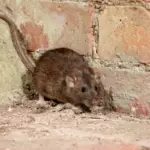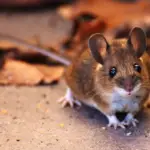Rats are a common pest that can cause significant damage to homes, gardens, and other properties.
They are known for their ability to reproduce quickly and their tendency to spread diseases.
Many people turn to rat poisons and traps to get rid of these pests, but there are also natural methods that can be just as effective.
One of the most popular natural methods for repelling rats is the use of certain scents. Rats have a very sensitive sense of smell, and there are certain odors that they find repulsive.
By using these scents, homeowners can deter rats from entering their homes and gardens, and can even drive them away if they are already present.
There are many different scents that are said to be effective at repelling rats. Some of the most commonly recommended scents include peppermint, garlic, onions, and hot peppers.
These scents can be used in a variety of ways, from placing fresh herbs around the home to creating sprays and sachets.
While there is no guarantee that these scents will work for every situation, many people have reported success with these natural methods.
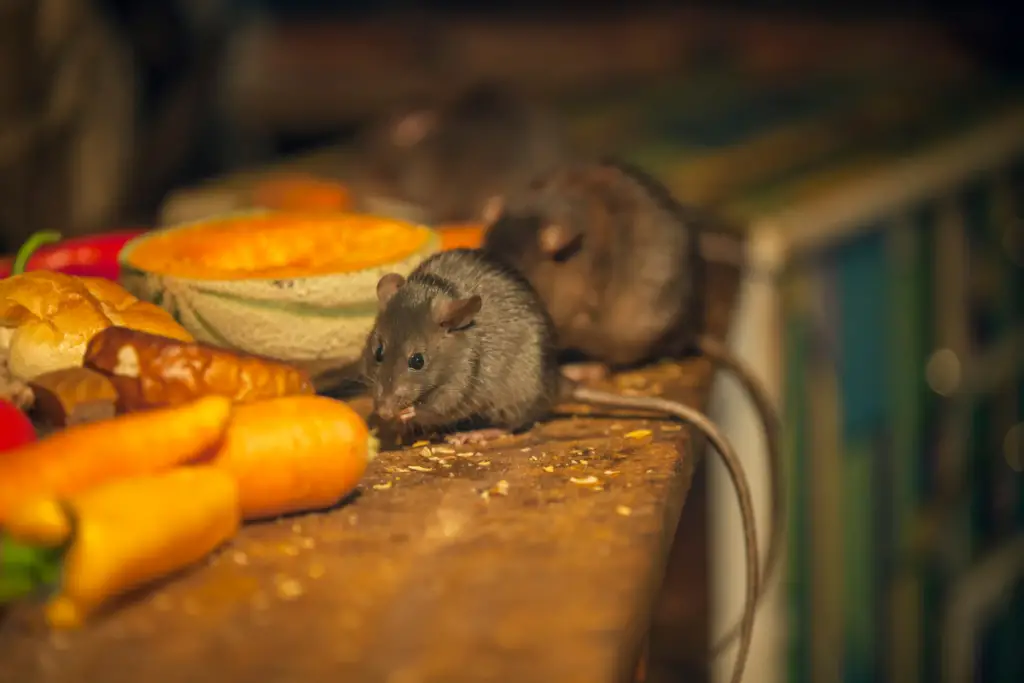
Table of Contents
Understanding Rat Infestations
Rat infestations can be a serious problem for homeowners and businesses alike. Rats can cause damage to property, spread diseases, and contaminate food.
Understanding the signs of a rat infestation and the health risks associated with it can help you take action to prevent and control these pests.
Common Rat Infestation Signs
There are several signs that can indicate a rat infestation. These include:
- Rat droppings: Rat droppings are small, dark, and tapered, and can be found in areas where rats are active, such as in cupboards, behind appliances, and in dark corners.
- Gnaw marks: Rats have powerful teeth and jaws, and will gnaw on anything they can find to keep them sharp. Look for gnaw marks on electrical wires, wood, and plastic.
- Grease marks: Rats have oily fur, and will leave greasy marks on walls and floors as they move around.
- Burrows: Rats will dig burrows in gardens, under sheds, and in other outdoor areas.
- Scratching noises: Rats are nocturnal animals, and can often be heard scratching and scurrying around at night.
Health Risks of Rat Infestations
Rats can pose several health risks to humans. They can spread diseases such as leptospirosis, salmonella, and hantavirus through their urine and droppings.
They can also contaminate food with their droppings and hair, which can lead to food poisoning.
In addition to the health risks, rats can also cause damage to property. They will gnaw on anything they can find, including electrical wires, which can lead to fires.
They can also damage insulation and chew through pipes, which can cause water damage.
It is important to take action if you suspect a rat infestation in your home or business. This may include sealing up entry points, setting traps, and using rat repellents.
A pest control professional can help you develop a comprehensive plan to prevent and control rat infestations.
How to Get Rid of Rats
Rats are pesky creatures that can cause significant damage to your home and pose serious health risks. Here are some effective ways to get rid of rats.
Preventing Rat Infestations
Prevention is key when it comes to rat infestations. Here are some steps you can take to keep rats out of your home:
- Seal any cracks or gaps in your home’s foundation or walls.
- Keep your home clean and free of clutter.
- Store food in airtight containers.
- Dispose of food waste properly.
- Keep your garbage cans tightly sealed.
Traps and Baits
Traps and baits are effective ways to get rid of rats. Here are some options:
- Snap traps: These traps use a spring-loaded bar to kill rats instantly.
- Glue traps: These traps use a sticky substance to trap rats.
- Bait stations: These stations contain poison that rats eat and then die.
When using traps and baits, it’s important to place them in areas where rats are known to travel, such as along walls or near food sources. Be sure to check traps and dispose of dead rats regularly.
Using Rat Repellents
Rat repellents can be a natural and safe way to get rid of rats. Here are some options:
- Peppermint oil: Rats dislike the smell of peppermint oil. Place a few drops on cotton balls and place them in areas where rats are known to travel.
- Ammonia: Rats dislike the smell of ammonia. Mix a solution of ammonia and water and spray it in areas where rats are known to travel.
- Cayenne pepper: Rats dislike the smell of cayenne pepper. Sprinkle it in areas where rats are known to travel.
It’s important to note that while these repellents may be effective, they may not work for all rats. It’s also important to use them in conjunction with other methods, such as traps and baits.
By taking preventative measures, using traps and baits, and using rat repellents, you can effectively get rid of rats in your home.
Types of Rat Repellents
When it comes to rat repellents, there are two main types: natural and chemical. Each type has its own benefits and drawbacks, and choosing the right one for your situation will depend on a variety of factors.
Natural Rat Repellents
Natural rat repellents are made from plant-based ingredients and are generally considered to be safer for both humans and pets. Some common natural rat repellents include:
- Peppermint Oil: Rats are repelled by the strong scent of peppermint oil. Simply soak cotton balls in the oil and place them in areas where rats are known to frequent.
- Garlic: The strong odor of garlic is another effective natural rat repellent. Crush a few garlic cloves and place them in areas where rats are known to frequent.
- Hot Peppers: Rats are also repelled by the strong scent of hot peppers. You can make a spray by combining hot sauce, water, and dish soap, and then spraying it in areas where rats are known to be.
While natural rat repellents are generally considered to be safer, they may not be as effective as chemical repellents. Additionally, they may need to be reapplied more frequently.
Chemical Rat Repellents
Chemical rat repellents are made from synthetic ingredients and are generally considered to be more effective than natural repellents. Some common chemical rat repellents include:
- Ultrasonic Repellents: These devices emit high-frequency sound waves that rats find irritating and will cause them to leave the area.
- Poison Baits: These are designed to be ingested by rats and will kill them. However, they can be dangerous to pets and children if not used properly.
- Glue Traps: These traps use a sticky substance to trap rats. While they are effective, they can be cruel and may not kill the rat immediately.
Overall, chemical rat repellents are generally more effective than natural repellents, but they can be more dangerous and cruel.
It is important to weigh the pros and cons of each type of repellent before choosing the right one for your situation.
Do Smells Kill Rats?
When it comes to getting rid of rats, there are many methods available. One of the most popular methods is using smells to repel or kill rats.
But do smells actually work to kill rats? Let’s take a closer look.
Effectiveness of Smells on Rats
While rats have a strong sense of smell, not all smells are effective in repelling or killing them.
Some smells, such as peppermint oil, garlic, and mothballs, are often touted as effective rat repellents, but their effectiveness is debated.
Smells that Repel Rats
There are some smells that have been shown to repel rats. These include the smell of predators, such as cats, and the smells of certain plants, such as garlic and various essential oils.
Additionally, some substances with domestic use, such as bleach and mothballs, have a pungent smell that repels rats.
However, it is important to note that these smells only repel rats and do not kill them.
Smells that Kill Rats
There are some smells that can be lethal to rats. For example, ammonia has a smell similar to that of urine, which can be effective in keeping rats and mice away.
However, ammonia can be dangerous to have around the house, so it should be used with caution.
Another smell that can kill rats is the smell of gasoline. Rats are attracted to the smell of gasoline, but it can be lethal if they ingest it.
In conclusion, while there are some smells that can repel or kill rats, their effectiveness is limited. It is important to use a combination of methods, such as traps and baits, to effectively get rid of rats.
Conclusion
In conclusion, while there are various scents that may repel rats to some extent, there is no definitive smell that can kill rats.
Rats have a highly developed sense of smell and can be deterred by strong odors such as peppermint, ammonia, or predator scents.
However, these scents are not lethal to rats. To effectively control rat populations, it is crucial to employ a comprehensive approach that includes proper sanitation, sealing entry points, and using appropriate traps or professional pest control methods.
- How to Build a Planter Box for Bamboo: A Step-by-Step Guide

- Can Robotic Lawnmowers Handle Steep Slopes?
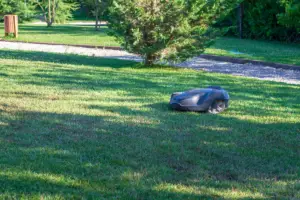
- Do You Need a Specific Lawn for a Robotic Lawnmower? Expert Advice
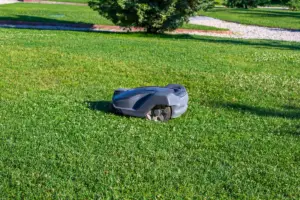
- Are Robotic Lawnmowers Safe for Pets and Children? Safety Features of Robotic Lawnmowers

- Why Use Robotic Lawnmowers? Advantages of Using a Robotic Lawnmower

- Is the GARDENA SILENO City 300 Cordless or Corded? A Clear Answer










